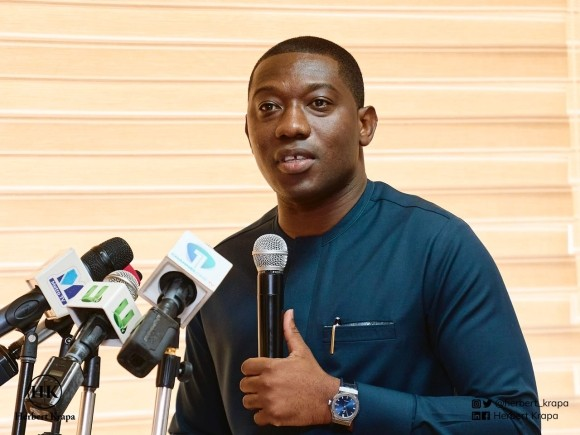The Ghanaian government is implementing significant reforms in the energy sector, aiming to bolster local value creation, generate job opportunities, and facilitate skills development while ensuring technology transfer to its citizens. At the 2024 Local Content Conference and Exhibition held in Takoradi, Mr. Herbert Krapa, Minister of State at the Ministry of Energy, highlighted the introduction of amendments to the Petroleum (Exploration & Production) General Regulations, specifically L.I. 2359. These amendments enable the Energy Minister to approve exploration activities within defined Development and Production Areas, while providing the Petroleum Commission with the authority to expand these areas to include prospective zones within contract areas.
These reforms are designed to incentivize existing companies to invest in new drilling operations and optimize resource recovery from current fields. The Minister emphasized that the intention is not to stifle foreign investment or promote inefficient local businesses but rather to foster genuine partnerships that elevate the capabilities of indigenous companies. Krapa’s statement underscores a balanced approach; while he promotes local enterprises, he also recognizes the value of foreign participation in the energy sector. His approach is strategically oriented towards enhancing local capacity, ultimately seen as a means to drive sustainable economic growth and innovation rather than resorting to nationalization or overly protectionist policies.
Additionally, Mr. Egbert Faibille Jnr., Chief Executive Officer of the Petroleum Commission, shared insights on Ghana’s oil production journey since the country’s entrance into commercial oil production. As of August 2024, Ghana had produced approximately 753 million barrels of oil. He pointed out the significant milestones in this journey, notably the commencement of production at the Tweneboa Enyenra Ntomme (TEN) Field in August 2016 and the Sankofa Gye Nyame Field in May 2017. The steady growth in production reflects Ghana’s advancing capabilities in the sector and readiness to attract further investments.
The conference showcased a collaborative spirit among stakeholders in the energy sector, reinforcing Ghana’s commitment to developing robust local content policies. By fostering local talent and encouraging local firms to partake in the oil and gas sector, the government hopes to create a self-sustaining ecosystem that not only serves immediate economic interests but also builds a resilient economy capable of withstanding global market fluctuations. These ongoing reforms are supported by a framework that identifies and nurtures local companies, ensuring they can effectively compete in the global energy market.
Moreover, the recent exploration successes between 2018 and 2022, which resulted in six new discoveries from seven wells drilled, demonstrate Ghana’s untapped potential in energy resources. As the sector evolves, the government seeks to capitalize on these findings by making the necessary investments and operational adjustments to optimize resource extraction and management. By promoting a synergistic relationship between local and foreign companies, Ghana aims to create a dynamic energy landscape that is competitive and sustainable in the long run.
In summary, the ongoing reforms in Ghana’s energy sector signify a pivotal shift towards enhancing local participation while maintaining an inviting environment for foreign investment. The government’s strategy, as articulated by the Minister and the CEO of the Petroleum Commission, focuses on creating a viable framework for indigenous companies, supporting skills development, and ensuring the effective transfer of technology. As these measures are gradually implemented, stakeholders remain optimistic about the future of the energy sector and its role in Ghana’s overall economic growth.














